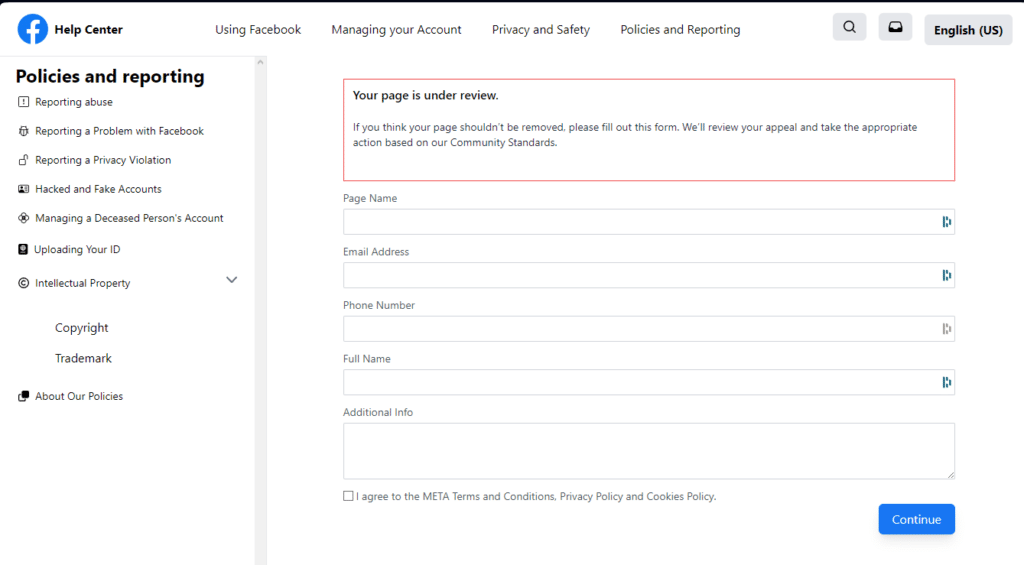Warning about fake emails from Facebook / Meta: Unsuspectingly, recipients open an official-looking email that supposedly comes from Facebook. It claims there are issues with copyright infringement in the user's recent posts. What follows is a sophisticated deception that ends in digital data theft.

The following article takes you step by step through this fraudulent process and reveals how these criminals work to gain control of online identities.
Beware of deceptively genuine emails
The email claims to be an urgent notification from Facebook and is stamped with a meta logo to maintain the appearance of authenticity. It informs the recipient about alleged copyright complaints, which lead to the necessary verification of the account. This not only plays on the user's fear of having broken the law, but also cleverly stages a call to action. A link will be provided where you can submit your objection.
The Fake Help Center Trap
If you click on it if you're unsure, you'll end up on a page that looks confusingly similar to Facebook's help section. The URL is cleverly chosen, it suggests authenticity.

However, the web address displayed is a fake, a lure designed to trick the user into revealing personal information. When asked to enter their page, email address, phone number and name, many people fall for it and follow the instructions.

The unexpected data theft
After entering your personal information, a pop-up window will appear asking you for your password.

With every click you reveal more about yourself until you are finally asked to enter a security code - another building block in the illusion of security.

However, the final redirect to the real Facebook page only serves one purpose: to give the user a false sense of security. At this point, the private data has long been in the hands of the fraudsters.
The truth about the phishing attack
This process is known as phishing, a technique criminals use to attempt to obtain personal information through fake websites or emails. Fraudsters can use the stolen information to gain access to Facebook pages and private profiles, misuse them for criminal purposes or sell the data on the black market.
How to protect yourself
Awareness of this type of fraud is the first step to security. Be skeptical when asked to enter your personal information online and always check the URL in the browser. Facebook and Meta will never ask you to enter sensitive information such as passwords or security codes through an insecure platform.
Conclusion: Your vigilance is the best protection
Even as fraudsters' methods become more sophisticated, one thing remains the same: your attention and caution are the most powerful tools in the fight against identity theft. By sharing this information and constantly scrutinizing your online practices, you can protect yourself and your data from these invisible thieves.
Has this article piqued your interest? Stay informed and critical – subscribe to the Mimik a ma newsletter and take advantage of our media education offerings .
Also read: This is how Google examines your online life
Notes:
1) This content reflects the current state of affairs at the time of publication. The reproduction of individual images, screenshots, embeds or video sequences serves to discuss the topic. 2) Individual contributions were created through the use of machine assistance and were carefully checked by the Mimikama editorial team before publication. ( Reason )

